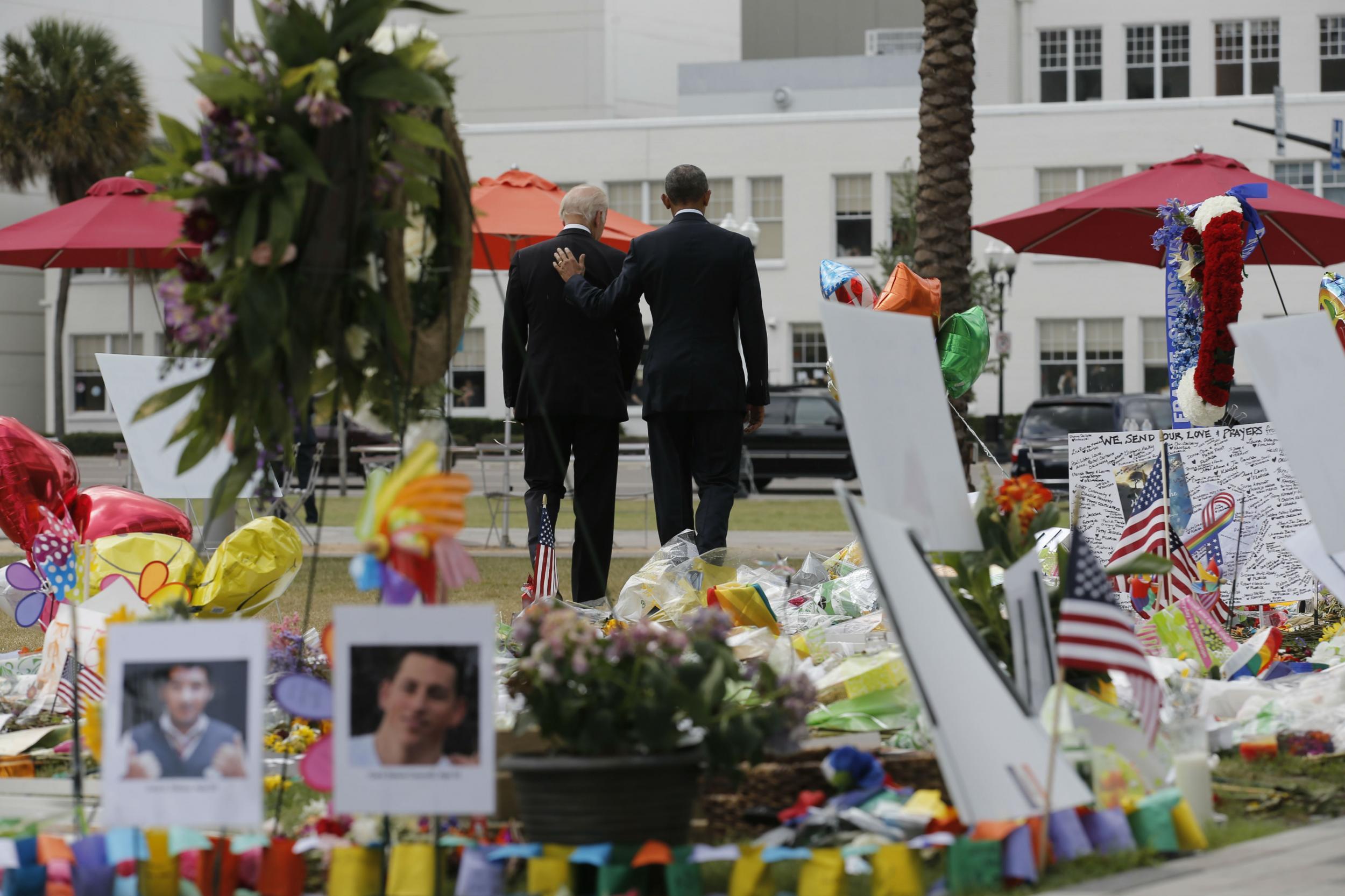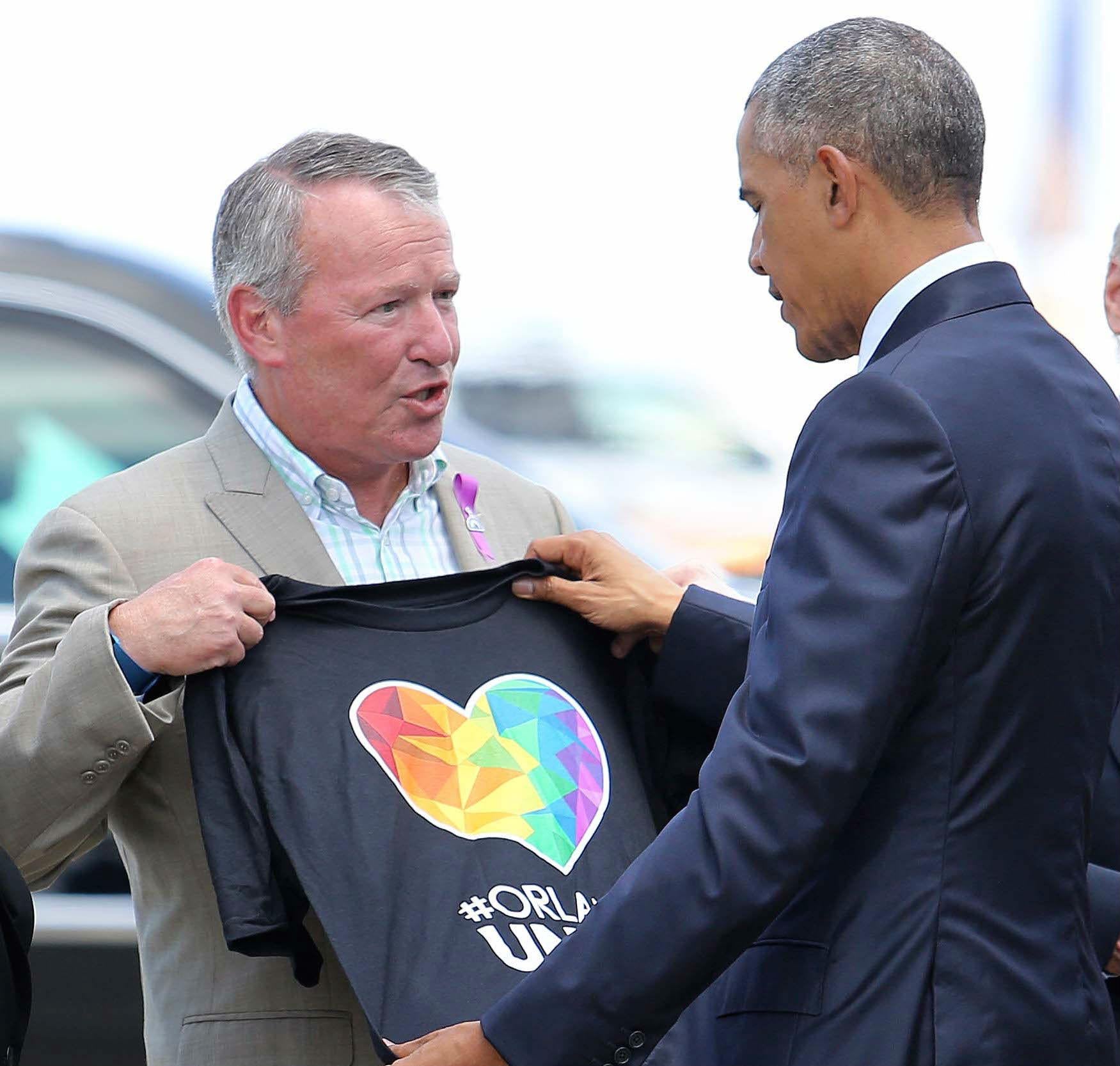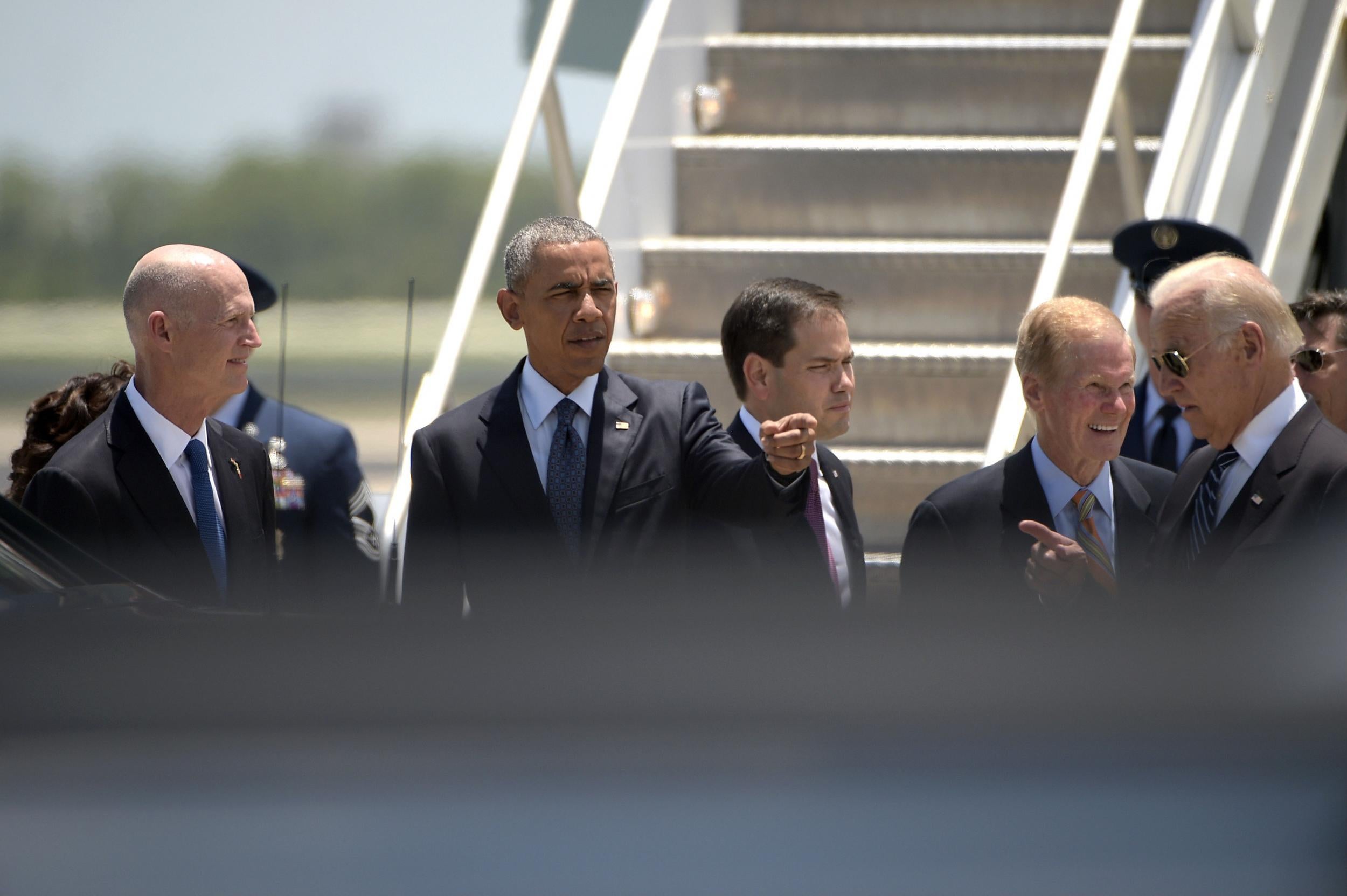Orlando attack: President Barack Obama makes his 10th visit to a community grieving after a mass shooting
The president has said this is one aspect of his job that he hates

Your support helps us to tell the story
From reproductive rights to climate change to Big Tech, The Independent is on the ground when the story is developing. Whether it's investigating the financials of Elon Musk's pro-Trump PAC or producing our latest documentary, 'The A Word', which shines a light on the American women fighting for reproductive rights, we know how important it is to parse out the facts from the messaging.
At such a critical moment in US history, we need reporters on the ground. Your donation allows us to keep sending journalists to speak to both sides of the story.
The Independent is trusted by Americans across the entire political spectrum. And unlike many other quality news outlets, we choose not to lock Americans out of our reporting and analysis with paywalls. We believe quality journalism should be available to everyone, paid for by those who can afford it.
Your support makes all the difference.If President Barack Obama found it difficult to speak to the survivors of the Pulse nightclub killing, it was not for lack of experience.
His low-profile visit to Orlando on Thursday, where he was accompanied by Vice President Joe Biden and Florida Senator Marco Rubio, was the 10th occasion he had gone to try and offer solace to a community grieving after a mass shooting. He has previously said it is one of the most difficult aspects of his job, and litttle wonder.
“The last two terrorist attacks on our soil - Orlando and San Bernardino - were homegrown,” Mr Obama told after his meetings, with people still stunned and officials still reeling. “We're going to have to do more to prevent these kinds of events from occurring. It's going to take more than just our military. It's going to take more than just our intelligence community."
He said it was way past time for politicians to do something about gun control. The victims' families had no time for politics over the issue, he said, and neither did he. Those refusing to understand the need for swift action should have "held and hugged" those relatives and survivors he met, he suggested.
Some had said the president may wait a little longer before traveling to Florida, as he did when he visited Charleston, South Carolina, and San Bernadino in California, after similar atrocities.
Yet for some reason, he decided he should come swiftly, as a debate about gun control and tolerance continues to engulf the country.
“I think it is good that he comes and shows support,” said Jessica Sciacca, who was waiting outside the city’s Amway Centre stadium, where the president met privately with families of the 49 victims, with survivors and with local police and other law enforcement officials who had responded to last Sunday’s shooting.
“I think the city has to come together. People have been coming together already.”
The day before the president's visit, his spokesman, Josh Earnest, said Mr Obama would focus on the victims, rather than enter, at least publicly, into the discussion over what led Omar Mateen to launch the attack. The 29-year-old, who had previously been investigated for possible links to Islamic extremism but cleared, claimed his attack on a gay night club had been done in the name of Isis.

But there are also reports that Mateen may have been gay himself, and that he used gay saying applications and had even visited the Pulse night club. His second wife told officials she had tired to talk her husband out of the attack and she is currently under investigation. There is widespread speculation she could be charged.
“The president’s visit to Orlando has nothing to do with the individual who perpetrated this terrible attack,” said Mr Earnest, according to the Associated Press. He said Mr Obama intended to tell residents “that they’re not alone, even as they endure what surely have been several dark nights.”
The White House released few details in advance about Mr Obama's trip, which aides said was hurriedly arranged in a fraction of the time usually required to plan a presidential trip. But the president planned to “to make clear that the country stands with the people of Orlando, stands with the LGBT community in Orlando, as they grieve for their loss”. He travelled with a group of politicians from both parties and Florida Governor Rick Scott, a Republican frequently at odds with Mr Obama, greeted the president on the tarmac upon his arrival.
The attack, which also left more than 40 people wounded, also quickly found its way into the presidential campaign.
Presumptive Republican nominee Donald Trump has expanded his call for temporarily barring foreign Muslims from entering the US - even though the attacker was an American born in New York and said the president “prioritises” America’s enemies over its people.
In a rare display of public anger, Mr Obama denounced both Mr Trump and the Republican leaders who are still supporting him. Many of those Republican leaders also denounced Mr Trump's rhetoric.

“We’ve gone through moments in our history before when we acted out of fear and we came to regret it,” Mr Obama said.
“We’ve seen our government mistreat our fellow citizens and it has been a shameful part of our history. This is not the America we want, it does not reflect our democratic ideals. It won’t make us more safe, it will make us less safe.”
Tamara Murray, who works at the Wells Built Museum of African American History and Culture, said she was also glad the president had come to show his support.
“I think it shapes a direction for the rest of the country at large,” she said. “There are many families who are going to affected for generations because lives were cut short.”
Join our commenting forum
Join thought-provoking conversations, follow other Independent readers and see their replies
Comments